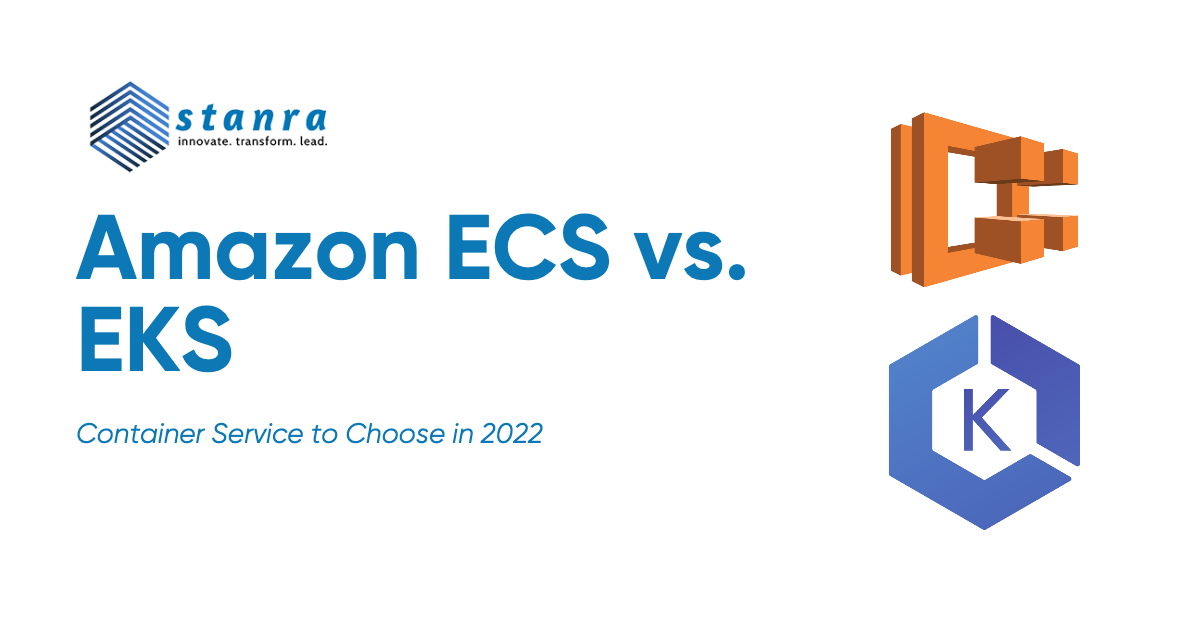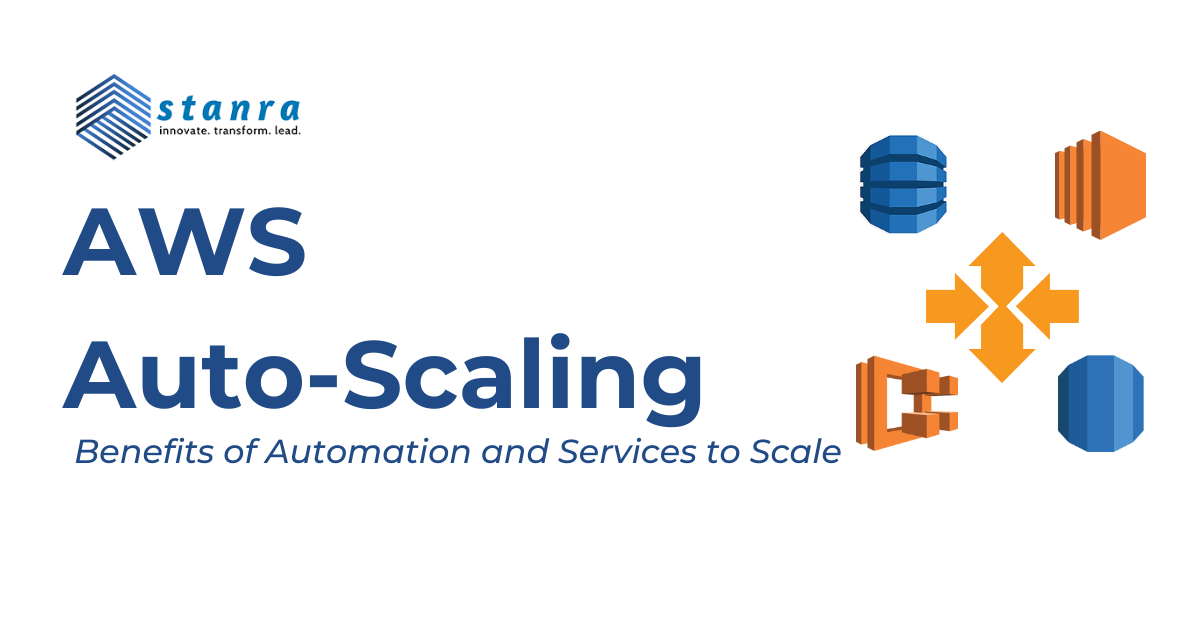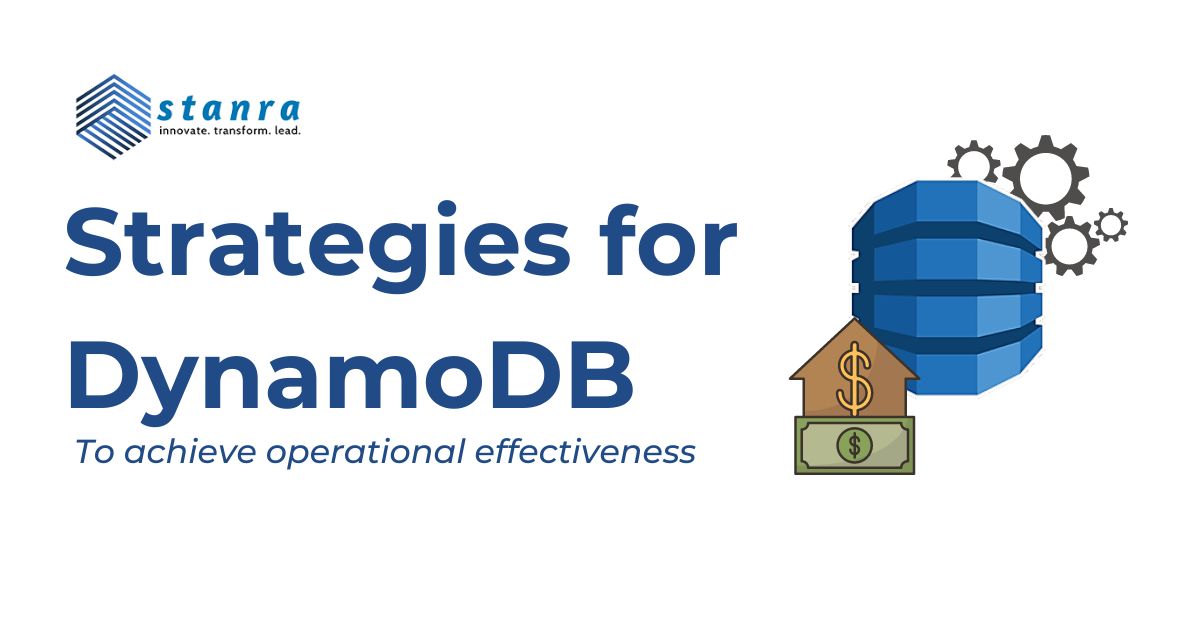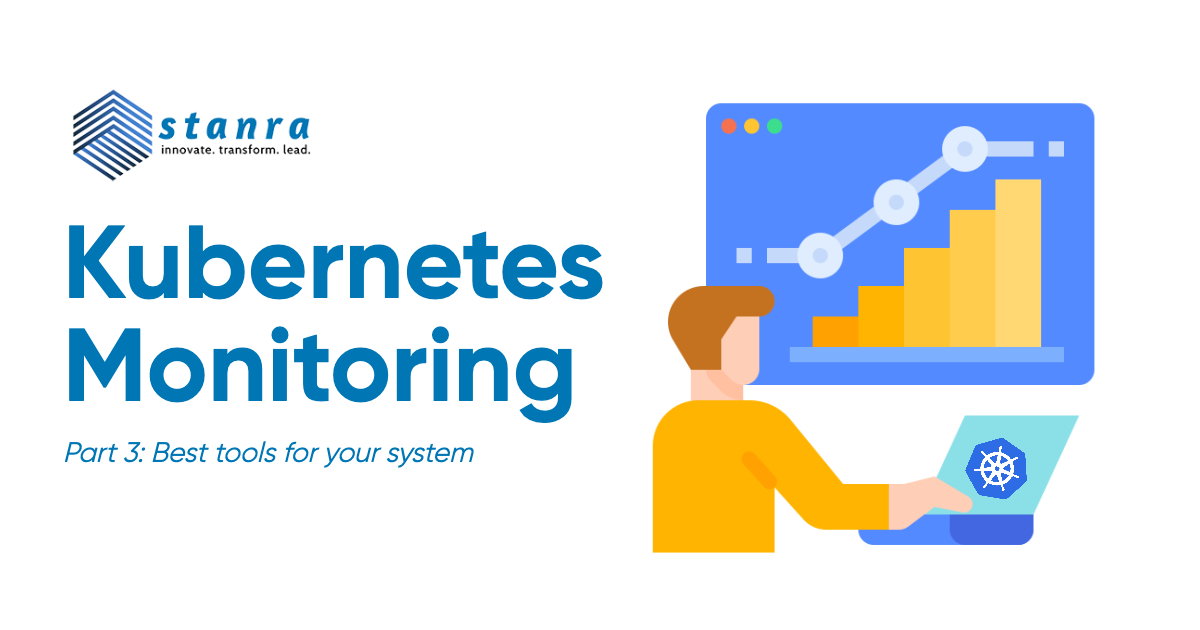Containerization means simplifying the building and deployment of applications with less overhead and increased portability. AWS offers two popular container services – Amazon ECS and EKS. Both the solutions have some similarities and differences, making it hard for the user to choose one. Today we will be discussing them and figuring out which container service would be the best for your use case.
Overview of Amazon ECS and EKS
Amazon Elastic Container Service (ECS) is a fully managed container orchestration service provided by AWS for Docker containers. Amazon ECS allows you to deploy, manage and scale your containerized application reaping the benefits of Docker’s ease of scalability and AWS’s inherent benefits.
Amazon Elastic Kubernetes Service (EKS) is a fully managed container orchestration service provided by AWS for the Kubernetes application. It allows you to run Kubernetes on AWS without the maintenance of a control plane or nodes. EKS automatically manages the scalability and availability of the control plane nodes.
Comparison based on 8 key factors
Simplicity and Flexibility
Out of the eight factors, this is by far the biggest, on which ECS and EKS differ. ECS was designed to be very simple and decrease the number of decisions a user has to make while delivering the highest standard of computing, network and security configurations. ECS reduces the total time to build, deploy or migrate containerized applications due to its quick-to-market approach and tight integration with AWS. EKS on the other hand requires developers to grasp the complexities of Kubernetes, making them rely on native tooling to manage configurations. But that makes EKS more flexible than ECS.
Ease of use and deployment
ECS is a native AWS solution and it does not require a control plane. Developers can configure and deploy tasks directly from the management console after the initial setup and it does not have many moving components. While AWS helps with the management of the Kubernetes control plane with EKS, Kubernetes is a vast technology to learn with complex configurations when compared to ECS. This means that any DevOps team working on EKS would require more experience and expertise on Kubernetes.
Pricing
For Amazon ECS, you pay for the resources according to the compute platforms you run your containers on. EKS has the same pricing model but it charges the user $0.10 per hour more for each EKS cluster you have. For bigger applications having multiple clusters, this small fraction of the cost might become pretty high.
Scaling
ECS is a clear winner here. Being a native AWS service, the user can manually configure scaling even if it can be a bit confusing. But what is important is that it has a scaling feature which allows you to scale up and down as needed. You have to provide a target capacity and ECS creates a scaling plan. EKS does not offer a fully managed scaling option. The user has to manually configure requests, limits and Horizontal Pod Autoscaler to keep the use of resources in check. But you can manage the worker nodes by using the Cluster Autoscaler.
Monitoring
Both the services have built-in monitoring and they easily integrate with other AWS tools. Users can use Amazon CloudWatch to monitor both ECS and EKS with container insights. For ECS, you can set alarms, and track and filter metrics. ECS also has compatibility with third-party monitoring tools. Because EKS is slightly different from ECS, Amazon introduced GuardDuty to monitor EKS cluster control plane activities. It is also integrated with AWS CloudTrail to gain visibility into EKS audit history.
Security
AWS provides the standard level of security to both the services and both ECS and EKS users have access to IAM policies to control and limit user access to ECS tasks and EKS pods. But ECS being the native AWS solution, allows users to make granular decisions based on tasks and containers, offering a high level of isolation. EKS needs add-ons to enable AWS IAM and other features that provide additional security will cost extra. But EKS offers access to Kubernetes native security tools that admins and developers can benefit from.
Portability and Compatibility
ECS is a native AWS service but EKS is an open-source solution. So ECS is mostly locked into AWS but features like ECS Anywhere can make it more compatible and portable with other cloud platforms. EKS is compatible with multiple providers from the start and even works on-premises. But since Kubernetes is not native to AWS, it provides higher flexibility.
Networking
It is essential to have the ability to assign network interfaces and security groups to a task or pod directly, without opening all ports. While both ECS and EKS have facilities to do that, the number of tasks or pods running per EC2 instance varies a lot. You can run up to 750 pods per Elastic Network Interface (ENI) when using EKS but that number is limited to 180 for ECS. It entirely depends upon your application and if it needs more than the maximum limit of ECS, take this factor into consideration.
Conclusion
Both ECS and EKS have some underlying benefits but it really depends on your application and the development team to decide upon a containerization technology.
If you are new to containers and are looking for a simple and powerful solution, then ECS is the way to go. You can achieve high integration with the AWS platform and build containerized microservices. It is also beneficial if you have limited DevOps resources and little to no experience in Kubernetes.
But if your team already has been working with Kubernetes and requires large or hybrid deployments, then EKS offers more customizations and better portability. It is the best choice for an experienced team looking to have fine controls over container placement and tooling.
It really depends on the requirements of your application and the team’s preference that will guide the final decision. But if you require further guidance, our experts are always here to help you. Stanra Tech Solutions is a Select AWS Consulting Partner that can help with your business problems arising in cloud development. Connect with us or visit us on our website.







Leave A Comment